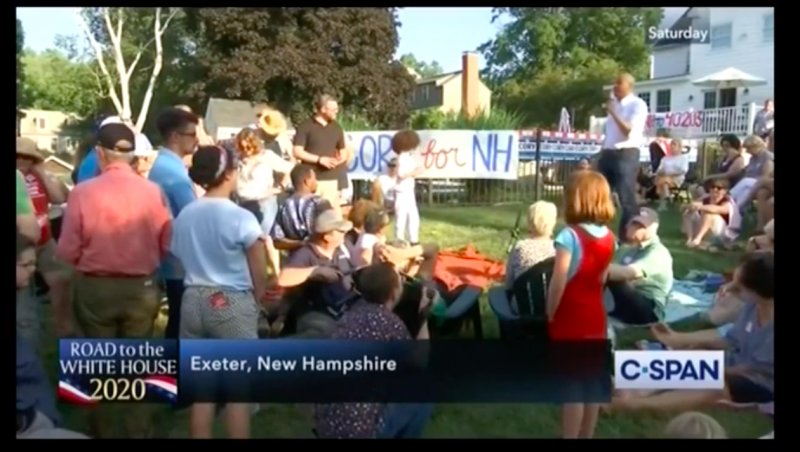
2020 Democratic presidential candidate Cory Booker said that “I do support” a carbon tax during a campaign event in Exeter, New Hampshire on Saturday.
[Click here to watch]
“Do you plan to institute a carbon tax and increase emission standards for businesses?,” a person asked the candidate at the event.
“I don’t think we can meet our climate goals with somehow without somehow pricing carbon….but yes, I do support that, okay,” Booker responded.
Carbon taxes are so very unpopular with voters. In fact, carbon tax advocates can’t even get a carbon tax passed in a single blue state, as this timeline shows.
Booker’s comment is consistent with what he told the New York Times in April when asked if he supports a “federal carbon tax.”
“A federal price on carbon should be one part of a comprehensive response by the federal government to the threat of climate change. The proceeds should be paid out as a dividend in a progressive way that ensures that our climate policies are also reducing inequality and not burdening everyday families.”
However, Booker’s carbon tax plan would undoubtedly hurt “everyday americans,” and would require alarge bureaucracy to implement and run.
Most devastating for voters, however, is that it will impose severe tax increases on Social Security recipients.
Because the Booker carbon tax would significantly increase household costs — cooling and heating, transportation, groceries, etc. – his plan would direct the federal government to send payments to households in an attempt to compensate for the increased cost burden.
But these payments, called a “dividend” by Booker — are subject to federal income tax. The tax will not only siphon money from households to be sent to Washington — it will also impact Social Security benefits.
A report published by the pro-carbon tax Citizens’ Climate Lobby acknowledges the following:
“Taxability of Dividends raises three separate issues: (i) additional complexity for taxpayers; (ii) the equity of the disparate effective marginal tax rates on taxable Dividends for various residents; and (iii) the method or methods by which those taxes would be paid.”
Regarding Social Security recipients, the report states:
“Over the income-related phase-in range for the taxation of social security benefits, each additional $1.00 of non-social security income causes an additional $0.50 or $0.85 of social security benefits to become taxable. In most situations, the ordinary income tax rate in the phase-in range is 10 percent; however, at some income levels, the rate is 12 percent. Thus, $1.00 of non-social security income — including income from the Dividend — will be taxed at effective marginal rates of 15 percent, 18 percent, or 22.2 percent.“
The report gives an example of how the tax would hit a typical couple over age 65 with an income of $38,000 and a Social Security benefit of $12,000:
“Based on that income, the tax rate schedule shows that their marginal tax rate would be 10 percent. However, the addition of $1,584 of taxable Dividends from the Carbon Fee causes more of their social security benefits to become taxable, and their marginal tax rate due to the Dividends is 20.12 percent, so that after paying their income tax, the couple is left with only 79.88 percent of their gross Dividend.”
Citizens’ Climate Lobby was caught on tape admitting carbon tax cost and complexity is “something that we at CCL can tend to soft-pedal.”
It’s no wonder 75 conservative groups wrote a letter to congress stating: “We oppose any carbon tax.”
Carbon taxes also saddle state and local governments with huge costs. For example, a school district in Calgary was forced to kick 400 kids off the school bus program in order to pay a $3.3 million carbon tax bill.

